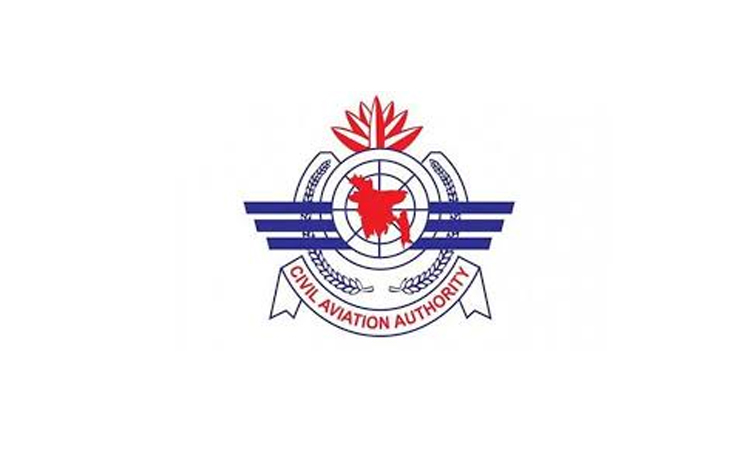News Flash
News Flash

By Tanzim Anwar
DHAKA, May 21, 2025 (BSS) – To boost air cargo capacity after India’s transhipment halt, the Civil Aviation Authority of Bangladesh (CAAB) has recommended to the ministry for reduction in key charges, including landing, parking and ground handling at the country’s airports.
A senior CAAB official told BSS today that the set of recommendations, submitted on Monday, include slashing landing, parking, and ground-handling fees of Biman with the aim of making air cargo services more cost-effective and resilient amid external disruptions.
“As per directives from the highest level, we’ve proposed adjustments to make cargo operations smoother and cheaper. The final decision now rests with the ministry,” the official said.
He said the recommendations were developed following consultations with Biman Bangladesh Airlines, the sole ground-handling service provider at HSIA.
The move is part of a broader government strategy to expand air cargo infrastructure and streamline operations after India abruptly revoked a four-year arrangement that allowed Bangladeshi goods, primarily garments, to be transported by land for onward air shipment via Indian airports such as Kolkata and Delhi.
Commerce and Civil Aviation and Tourism Adviser Sk Bashir Uddin earlier stated that the government had taken all necessary steps to tackle the challenges stemming from India’s decision, including revising tariffs to bring down logistics costs.
“We are determined to reduce cargo costs and make our services even more competitive than transhipment through India,” the adviser said.
CAAB Chairman Air Vice Marshal Md Monjur Kabir Bhuiyan echoed the government’s resolve, saying that both CAAB and Biman are jointly implementing extensive measures to ensure uninterrupted cargo movement.
“We’re working together to revise existing tariffs to ensure cost-effective cargo handling,” Bhuiyan told BSS.
“We have been instructed at the highest level to keep air cargo operations running smoothly regardless of external factors, and we hope to announce reduced charges very soon,” he said.
In response to the growing cargo demand, CAAB has already deployed additional manpower at HSIA’s cargo terminal.
Sylhet’s Osmani International Airport launched full-scale cargo operations on April 27, while Chattogram and Cox’s Bazar airports are set to follow suit shortly. Efforts are also underway to expedite customs clearance processes.
“Our infrastructure is being rapidly expanded to accommodate two to three times the current cargo volume in preparation for the opening of HSIA’s third terminal,” Bhuiyan said.
“Sylhet’s newly operational cargo terminal also added significant capacity to the national air freight network,” he added.
The much-anticipated third terminal of HISA, slated to become fully operational later this year, is expected to enhance Bangladesh’s annual export cargo handling capacity from 200,000 tonnes to 546,000 tonnes. The terminal features a dedicated 36,000-square-metre cargo zone equipped with advanced automation systems and expanded storage.
“These improvements will allow us to handle cargo more independently and efficiently, substantially increasing both operational efficiency and revenue,” said the CAAB chief.
Currently, Biman’s passenger aircraft carry about 16 to 17 percent of HSIA’s annual cargo load, which totals approximately to 175,000 tonnes.
In addition to serving its own fleet, Biman provides ground-handling services for several international airlines, including Emirates, Cathay Pacific, Qatar Airways, Turkish Airlines, and Ethiopian Airlines, all of which operate dedicated cargo flights from Dhaka.
However, exporters have long expressed frustration over logistical inefficiencies and the high cost of air freight from HSIA.
Limited infrastructure, inadequate storage space, and runway constraints restrict the operation of larger freighter aircraft.
According to the Bangladesh Freight Forwarders Association (BAFFA), nearly 600 tonnes which is around 18 percent of Bangladesh’s weekly air garment exports were routed through Indian airports prior to the suspension.
The HSIA cargo village, initially designed for 300 tonnes per day, now frequently handles more than 1,200 tonnes during peak periods.
HSIA currently charges around $0.29 per kilogram, nearly six times higher than Delhi’s rate of $0.05. Additionally, jet fuel in Dhaka is about 30 percent more expensive than in India.
However, a reduction in jet fuel prices announced last week is expected to provide some relief for exporters.
Despite the disruption, aviation stakeholders believe that the current challenge has opened a window of opportunity for Bangladesh to reposition itself as a regional air cargo hub.